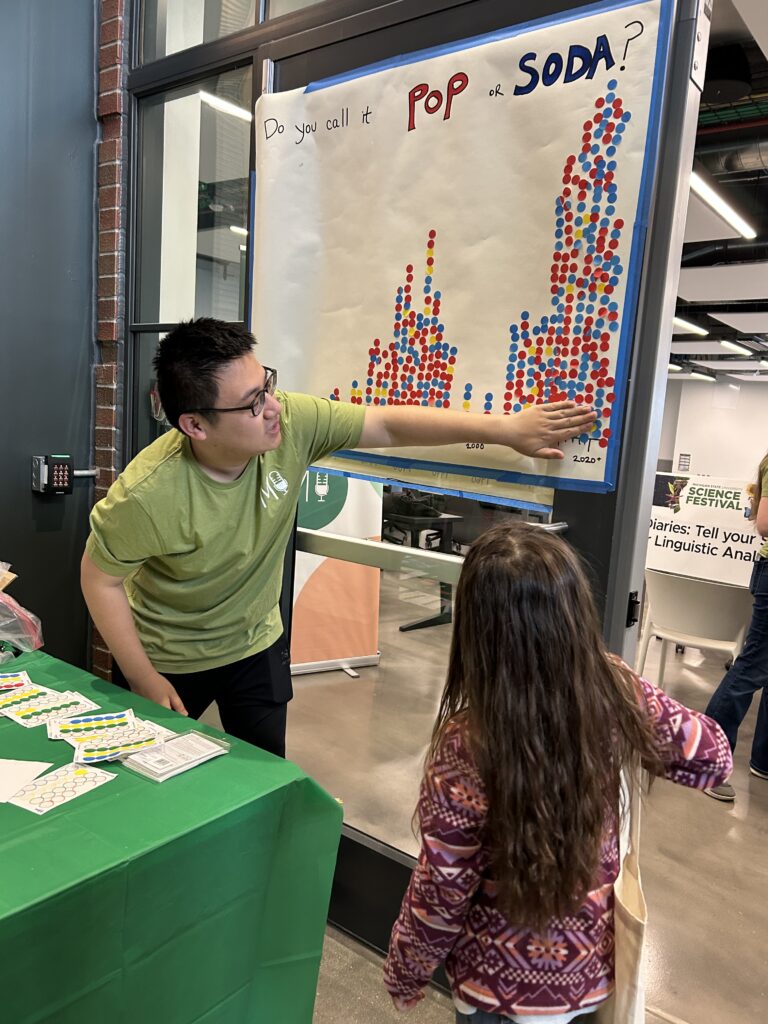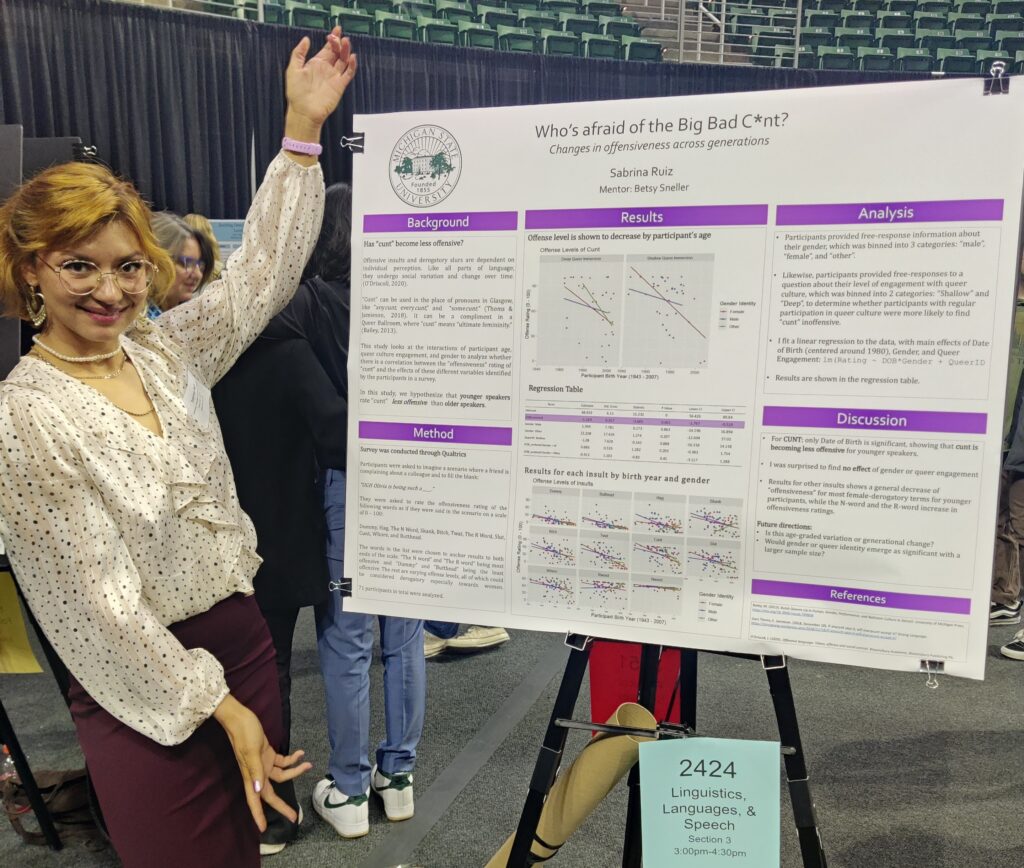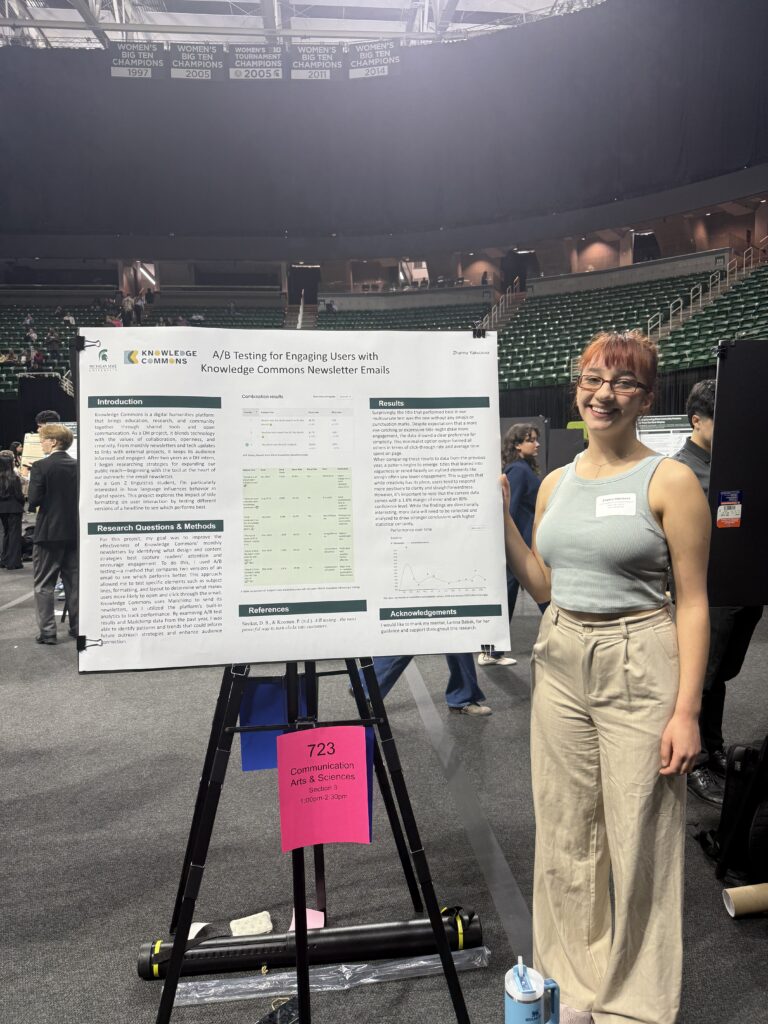We’re hiring! Come and work in the Sociolinguistics Lab under the direction of Dr. Betsy Sneller.
Position description
The successful applicant will join the MI Diaries project, which is collecting sociolinguistic data from Michiganders across the state. The position primarily will be in helping the MI Diaries project develop partnerships with middle and high school classrooms across the state, developing lesson plans for grades 5-10 based on MI Diaries data (in partnership with WGVU PBS Station), supporting project maintenance, and developing reports or manuscripts about community outreach in collaboration with the principal investigator (Betsy Sneller). We especially invite applicants with a record of success in both sociolinguistics and K-12 Education, as working with schools is a critical component of this position. There are no required teaching responsibilities for the position.
Important dates
Applications accepted from April 25, 2025 onwards. Review of applications will begin June 1, 2025. The position will remain open until filled.
More information
See the full position description at MSU Careers.




